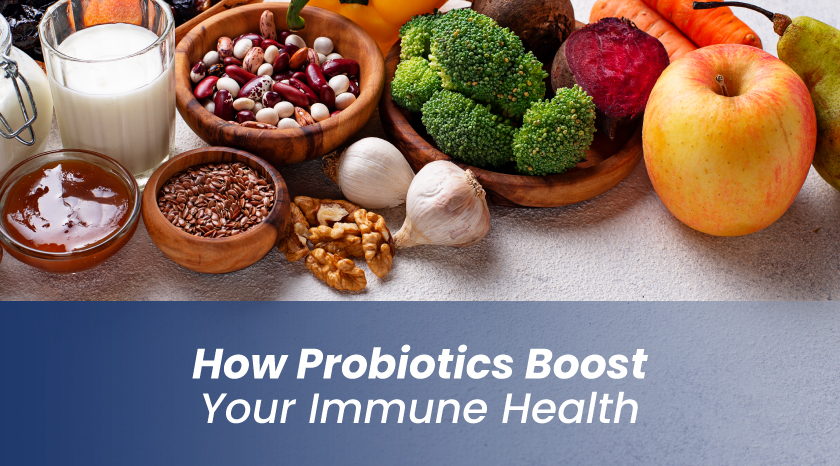In our quest for wellness, the immune system stands as our frontline defender, tirelessly warding off threats from harmful pathogens and keeping us healthy. As science delves deeper into the intricate workings of our body, a growing body of research highlights the pivotal role of probiotics in fortifying this crucial defense mechanism. Let’s explore how these beneficial microorganisms can be instrumental in bolstering our immune health.
Understanding the Immune System:
Before we delve into the role of probiotics, it’s essential to grasp the fundamentals of the immune system. Our immune system comprises a complex network of cells, tissues, and organs working harmoniously to identify and neutralize invading pathogens such as bacteria, viruses, and fungi. A well-functioning immune system is vital for maintaining overall health and resilience against illnesses.
Probiotics: Guardians of Gut Health:
The gut, often referred to as the body’s “second brain,” houses a significant portion of our immune system. This is where probiotics come into play. These live microorganisms, primarily bacteria strains such as Lactobacillus and Bifidobacterium, inhabit the gastrointestinal tract and play a crucial role in maintaining a balanced gut microbiota. By promoting the growth of beneficial bacteria and inhibiting the proliferation of harmful pathogens, probiotics help create an optimal environment for immune function.
Modulating Immune Responses:
Probiotics exert their influence on the immune system through various mechanisms. They stimulate the production of cytokines, signaling molecules that regulate immune responses, thereby enhancing the body’s ability to mount an effective defense against infections. Moreover, probiotics help maintain the integrity of the intestinal barrier, preventing the translocation of pathogens from the gut into the bloodstream, which could trigger systemic inflammation and compromise immune function.
Protection Against Infections:
Studies have shown that regular consumption of probiotics can reduce the risk and severity of common infections such as the common cold, influenza, and gastrointestinal infections. By enhancing the body’s innate defenses and supporting immune cell activity, probiotics help shorten the duration of illnesses and reduce the frequency of recurrent infections.
Alleviating Allergic Reactions:
In addition to combating infections, probiotics may also play a role in mitigating allergic responses. By modulating immune pathways and promoting immune tolerance, certain probiotic strains have shown promise in alleviating symptoms of allergic conditions such as eczema, allergic rhinitis, and asthma. This suggests a broader immunomodulatory role for probiotics beyond just fighting infections.
The burgeoning field of immunology continues to unveil the intricate interplay between our gut microbiota and immune health, with probiotics emerging as key players in this dynamic relationship. By nurturing a diverse and resilient gut microbiome, probiotics help prime our immune system for optimal function, enabling us to better withstand the challenges posed by pathogens and environmental stressors.
Incorporating probiotic-rich foods such as yogurt, kefir, sauerkraut, and kombucha into your diet, or opting for high-quality probiotic supplements, can provide the support your immune system needs to thrive. However, it’s essential to choose probiotic strains backed by scientific evidence and consult with a healthcare professional before starting any new supplementation regimen, especially if you have underlying health conditions or are immunocompromised.
With the right approach and proactive steps towards immune health, harnessing the power of probiotics can be a game-changer in your journey towards a resilient and thriving immune system.




